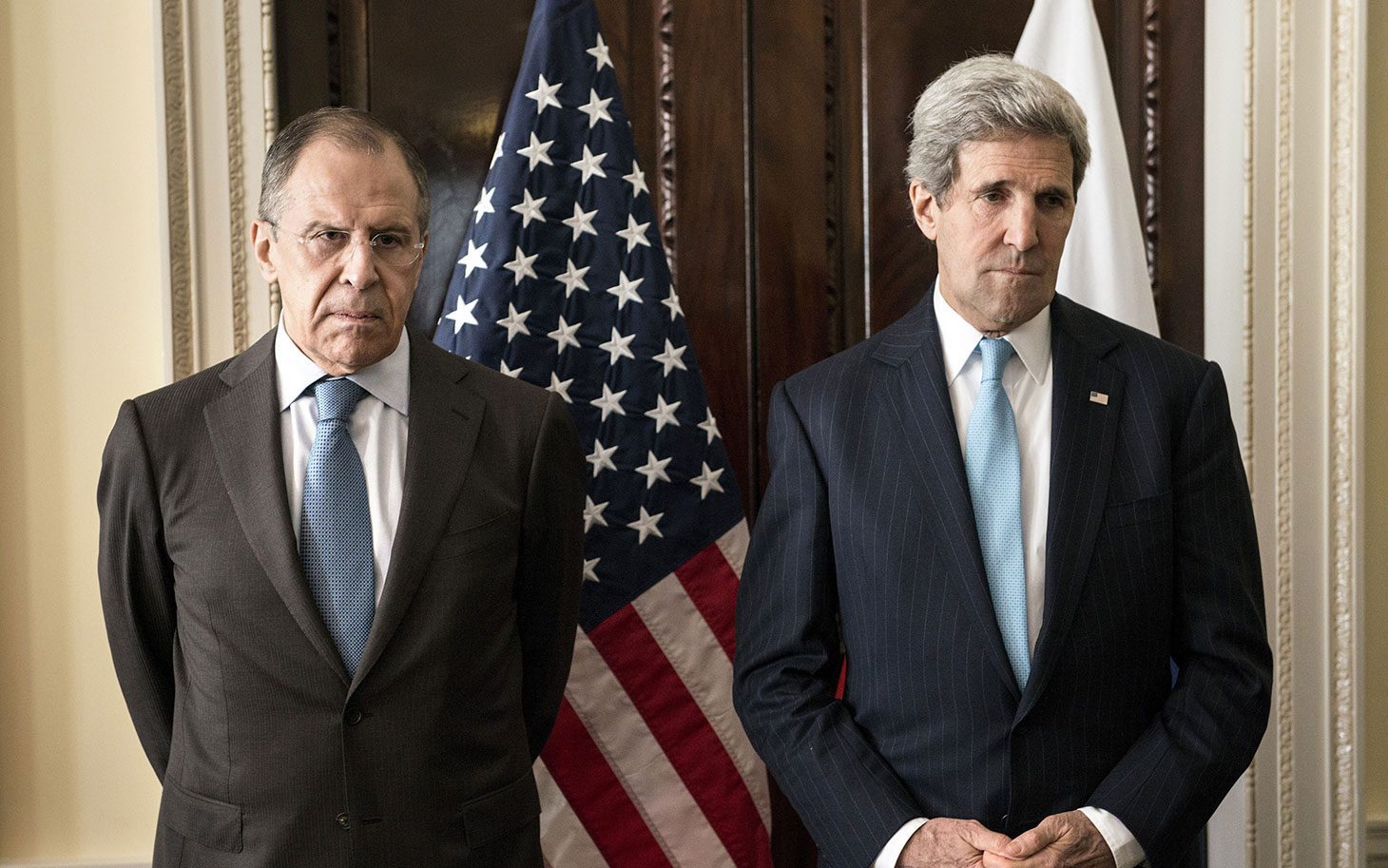
Russia, Turkey, and Iran have agreed to guarantee Syria peace talks and support widening a ceasefire across the whole country, reflecting the growing influence of the three powers on the Syrian ground and excluding the US from taking part in deciding Syria’s future.
Many ceasefire agreements accompanied by peace talks meetings were organized to help find a solution to the crisis, but Assad regime and Iranian forces breached every ceasefire and hindered every peace talks meeting without any pressure moves or real steps from the western powers.
The recent months especially witnessed numerous meetings between the US and Russian foreign ministers to find a solution to the Syria crisis, end the violence and start new peace talks but they led to nothing.
in the end, Russia said it has a new plan for Syria peace talks which can be achieved with powers that have a real effect on the Syrian ground.
Russia and Iran both back Assad, but Turkey, a NATO member, has long made clear it would prefer him to step down. Ankara has however sought to fix its relation with Russia in recent months after the coup attempt as the west abandoned its relations with Turkey.
The three countries said they were ready to help broker a Syria peace deal after the three countries held talks in Moscow on Tuesday and adopted a new declaration.
This new relation included Turkey’s moderation of its rhetoric on Assad, changing the goal of its military operation in Syria, decreasing its support for the armed Syrian opposition, and playing a major role in bringing the Syrian opposition to one table with Assad through the newly made agreement as the new agreement shows.
The move in general underlines the growing strength of Moscow’s links with Tehran and Ankara, despite the murder on Monday of Russia’s envoy to Turkey, and reflects Putin’s desire to strengthen Russia’s growing influence in the Middle East and more widely.
It also shows how fed up Russia is with what it sees as long and pointless talks with the Obama administration over Syria. Russian Foreign Minister Sergei Lavrov last week dismissed those talks as “fruitless sitting around,” while Kremlin spokesman Dmitry Peskov announced earlier Wednesday “almost every level of dialogue with the United States is frozen”, Russia’s RIA news agency reported.
However, it is not yet known how the US, the UN, and the western government will react to this new declaration and whether they will accept it or not, as the troika have moved everyone else aside and started what we can call “a new era in the Syria crisis.”
The coming US role
The new declaration and the comments after it attracted comments from the US administration.
“Obviously we don’t agree and have issues with Russia on a variety of issues, but dialogue has not been broken,” State Department spokesman John Kirby told reporters.
“We weren’t invited,” State Department spokesman John Kirby said of the Moscow meeting of foreign ministers.
“I’m just not sure what to make of his comment,” Kirby said. “That’s certainly not reflective of the way we see communications between Moscow and Washington.”
Kirby cited a Tuesday call between Secretary of State John Kerry and his Russian counterpart, and a Pentagon vice conference with Russia’s defense ministry on the situation in Syria, as evidence that communication has not been in any way disrupted.
Kirby said that Kerry would remain “100 percent” involved in seeking a political solution to Syria’s civil war in his remaining days in office, and he denied that the U.S. role as the indispensable power in the Middle East had been diminished or replaced by Russia and it new allies.
“There’s not a diminution of U.S. leadership or influence in the Middle East,” Kirby said. “The U.S. still remains heavily engaged. The U.S. still has a robust military presence there, and I don’t see that changing.”
However, the fall of Aleppo and Turkey’s alliance with Russia had implications for the presence of 300-500 mostly U.S. Special Forces troops in northeastern Syria who were now engaged in supporting a drive on Raqaa, the self-proclaimed ISIS capital, by a mixed Kurdish and Arab militia known as the Syrian Democratic Forces.
The U.S. military officials described three possible scenarios for Assad’s forces; they could move northwest against rebel forces in Idlib province, where many of the Aleppo refugees have fled; they could move northeast towards al-Bab, where Turkish forces have been trying to oust ISIS; or they could move east to retake Palmyra and open a corridor between Palmyra and the Syrian border with Iraq.
These conflicting statements and the facts on the ground make it clear that the coming era won’t be as easy as the global powers expect, as the tension between Russia and the US will enter a new level.
